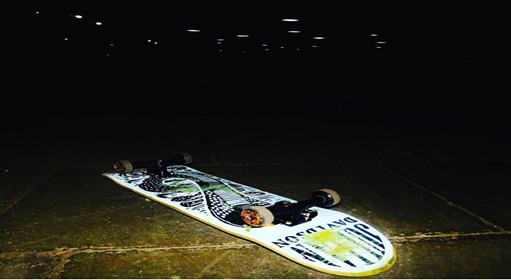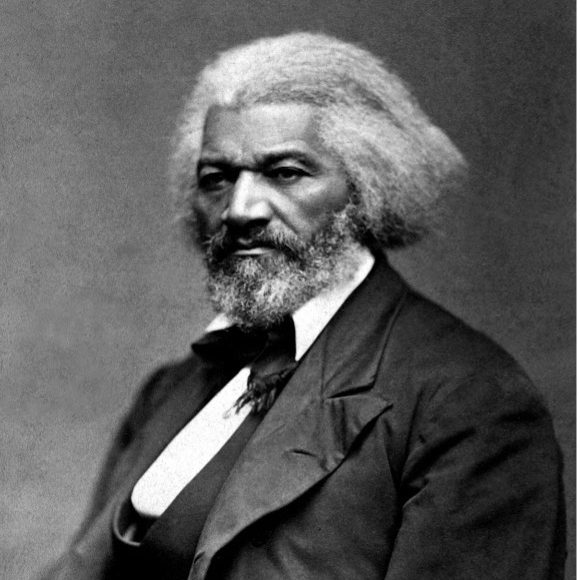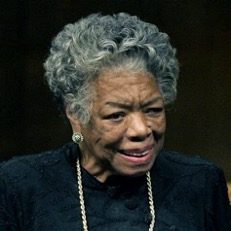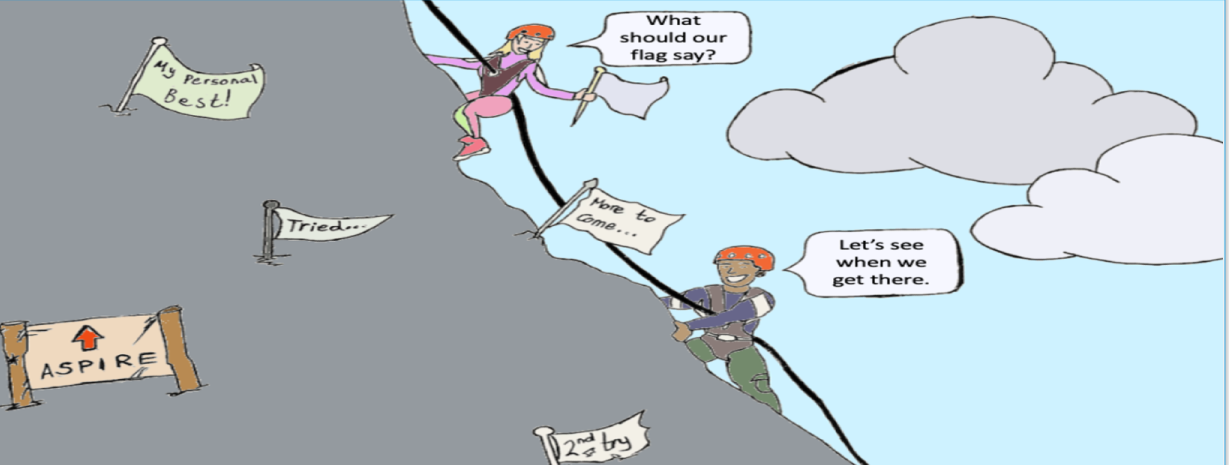


I found I’d sing these words, taken from one of my favourite songs on one of my favourite albums from 2003, on my way to every big test, challenge or life defining moment in my life as I moved from my teens to my twenties: GCSEs, A levels, uni interviews, uni exams…Whatever it was, that was my prayer - if that’s what a prayer is…
Why then, as I sat on a train from Richmond to London Waterloo, was the repeating mantra, spinning in my head on constant repeat, “don’t be sick, don’t be sick”? I was travelling into town to meet a friend at the station, and after that another two friends further in town. It was as if these words were the latest number one hit, completely embedded in my mind.
I was anxious… I realised then, and I had been for a while. I sipped on the third can I’d purchased to medicate myself for the 8pm meet at the station before we would venture further into the city. We’d booked a table at an up-and-coming pop-up steak house, boasting the best quality steak at the cheapest price in London. On that, I was sold.
The Tannoy overhead speaks: “…London Waterloo. Please remember to take all….” My mind blocks it and slips into something else. Shaking, but not visibly enough to cause concern for those around me, I begin scaffolding the dialogue I wish to pursue with the first friend of mine I’ll meet tonight:
- How are you?
- This weather, huh?
- When were you last in town?
- God, hasn’t it been ages since we’ve last seen each other?
My last question, I knew the reason for. It was me. I’d begun to put things off and suddenly I was beginning to realise why. Something was wrong. Instead of being the outgoing, confident social type I used to be, and had seemed to have forgotten until almost this moment, I’d suddenly become something else. I’d become the quiet, introverted, silent, self-conscious excuse-maker, who, instead of making interesting and exciting plans for the weekend, had decided that nothing was more appealing that staying in on my own and falling down a YouTube rabbit-hole of things I’d like to numb my brain with - often nostalgic thoughts.
I was struggling with anxiety and I hadn’t even realised.
As time passed, I began to become more alert to it… I began to clock the excuses; the unreasonable worry; the comfort blanket I’d woven and began to pull over myself so regularly.
This wasn’t me.
I’ve always been the kind of person who’s sought the deep end in everything I do. I wasn’t even a fan of the shallow end. Here I was, shying away from the locker room. Why? How did I allow myself to get to this point?
Things had to change.
It wasn’t easy (as to be expected) but after some thought, I’d convinced myself that I had to force it out of me - things had to change. I forced myself to put together some form of plan, absolutely unproven, absolutely unconventional, but absolutely my own.
Growing up, I was a huge fan of the Tony Hawk video games, which hosted one of the oldest and most instantly recognisable urban skate spots in the world - South Bank. Here I was in London (a dream I’d finally come to realise) never having skated the spot! Here I was in London, with an opportunity. This was going to be my remedy.

I’d decided that it was time to take the first step in battling this on-going feeling of absolute worthlessness and constant over-analysing and I would do it by getting myself up to catch the first train in from Richmond to London Waterloo.
It was a Saturday morning and the sun was splitting the sky - a good omen if there was one, in my book. I boarded the train, headphones in and mind fresh. No alcohol the night before, and at least until I’d overcome this, I told myself. I sat, listening to a playlist of my favourite, most inspiring tunes, reminding myself of the plan:
- arrive early, before all others.
- 10am, expect numbers to grow in smaller amounts - maybe 5 extra skaters?
- 12pm, expect to have 15 or so others skating around you with some by-standing spectators.
- 3pm, the day will be in full swing; highest volume of skaters/ observers but here, it won’t matter. You’ll have become used to it.
Before I got off the train, I reminded myself of my reasons for doing this, also considering the worst potential outcomes: anxiety, sickness, vomiting, panic attack. I told myself, if not today, tomorrow, but we must overcome this. I’m convinced that, that day, I did, all be it in small steps, change my way of thinking and reminded myself that the world wasn’t out to get me. It wasn’t comfortable, easy, or, for the most part, enjoyable, but I continued to challenge myself with the same prospect once a week, soon falling into habit.
Three months passed before I realised that things were beginning to change elsewhere. My mind wasn’t totally different but I realised small changes in my way of thinking which I continued to work on. Here I am, four years on, looking back and realising:
There I stood at a crossroads, ready to embrace my new identity of an anxiety-riddled twenty-something, looking at the alternative path, slightly intimidated by its gradient. It was hard, but, luckily, I have reflected enough to realise that those subsequent few steps in front of me, as difficult as they had to be, had to be, not the easy way.
I’m glad I took that path.
Date: Unknown
Authors: * Pseudonym used to protect the writer’s anonymity. Jay Bird is a primary school teacher based in London and an avid skateboarder and musician! And he is inspiring.
This shift from free speech being regarded as a core liberal value to one where it is viewed as only championed by those with nefarious motivation, has occurred rapidly and has caused consternation, and some conflict, in many institutions and professional groups (e.g. the British Psychological Society).
Furthermore, evidence of the role of educational institutions within this debate has been growing. The role of Prevent in schools, which aims to stop people being drawn into extremism, has raised concerns within some schools and communities as it may lead to a breakdown of trust and openness between teachers and children and young people (CYP), by silencing both parties who may wish to have an open dialogue about challenging ideas, arguments or beliefs in a supportive classroom environment (O’ Donnell, 2016).
Once assumed the bastions of free speech, or the crucibles of ideas, universities have found themselves needing to grapple with this same issue and have faced criticism for placing restrictions on the range of ideas that can be debated. An analysis of campus censorship at UK universities from 2017-2020 conducted by Civitas (2020) found that 35% of universities in the UK were deemed ‘most restrictive’ and 51% ‘moderately restrictive’ in terms of their curbing of free speech.
In recent months, a vote on free speech at Cambridge University voted to prioritise the ‘tolerance’ of others’ views rather than the ‘respect’ of others’ views so as to allow controversial or unpopular opinions (still within the law) to be expressed, questioned and debated (Coughlan, 2020).
Additionally, boys from Eton college have publicly raised concerns around what some have viewed as the restriction of ‘freedom of thought and expression’ within the school, following the dismissal of an English teacher over a controversial video about patriarchy, masculinity, and gender roles intended to stimulate debate within a critical thinking class.
The conflict arising in these examples illustrates the need for reflection on the extent to which we protect free speech within schools, and other educational establishments, and where we place the boundaries around this.
Our intention here is to consider what we, as psychologists, can add to this debate, in relation to the education of CYP, within a developmental perspective. We contend that the role of free speech is central to the cognitive, moral and socio-emotional development of CYP, and that child and educational psychologists have a role in ensuring this is understood and considered within the discussions and decisions taking place regarding where boundaries and restrictions lie.

‘To Think’ is to consciously reflect. Verbs we may use to describe this process could include: critique, reason, remember, evaluate, question, solve, weigh up, formulate, defend, challenge, evaluate, hypothesise, draw conclusions, and test. Or, indeed, to employ one’s mind rationally and objectively in evaluating a given situation (Facione, 1990; Schmaltz et al., 2017).
It is clear that even an adult accustomed to engaging in the above descriptions of ‘thinking’ would find the task cognitively challenging, especially in relation to topics with multi-layered levels of reasoning, or with varied lenses of potential analysis. Therefore, it is highly unlikely that children and young people would be able to engage in this type of reflection, formulate, conclude their own opinions, and be able to defend these both logically and ethically, without exposure to external models of critique, opportunities for challenge and defence, and without adult guidance and support. Freedom of speech, exposure to diversity of opinion, and the process of scrutiny and challenge associated with this process is therefore necessary for children and young people to truly think.
Freedom of speech is necessary for the freedom of thought.
This is far from a new idea and the advocating of a curriculum and culture in education which promotes critical thinking, of which open and honest debate on a range of ideas is central, has been part of an academic and applied critical thinking movement since the 1960’s (Facione, 1990). Without the process of challenge and reflection, children and young people may become passive recipients of the donated opinions of those who have previously engaged in the process of thought. This could challenge our central notions of what education is. If children are sheltered from embarking on the potentially arduous journey of engaging in thinking, with instead, truth as an already established fact to be imparted, and education functioning as a way to impart that truth, then are we challenging the bedrock of a liberal education? Are we inadvertently filling the vessel, instead of igniting the fire?
Freedom of thought and freedom of expression are inextricably linked and enshrined together in the United Nations Convention of the Rights of the Child which states that all children and young people must have the right to freedom of thought (Article 14), and expression (Article 13). A right to express who you are is intrinsic to our humanity and represents each individual’s equal value. Without it, our basic drive for self-actualisation, and formation of communities based on truth and justice, cannot be realised, as a removal of this natural right takes away the ability to think and grow.
When we talk, discuss, and debate we are exposed to contrary opinions, we are pushed to defend our own opinions, and challenge others, in a process which can expose ignorance, bias, and malevolence. Within this process of debate and challenge, the rational basis for opinions, the layers of reasoning, and the biases of arguments are also exposed to those listening, watching, or reading. The learning process of having your opinions tested, being exposed to new information, or accepting there are multiple, nuanced but rational positions on many contentious issues, should be an ongoing lifelong pursuit, but if children and young people are not exposed to this approach within schools, how do we expect them to achieve this?

Justice is arguably the most important moral concept in the history of western philosophy. It has been debated from Plato’s Republic, to the current movements for social justice, in attempts to establish principles of a fair and just society.
Justice is intuitive and developmental (Piaget, 1965; Kohlberg, 1984); however, to reach higher-order moral reasoning (the decision-making process by which what is right and wrong is established; Kohlberg & Mayer 1972), children need opportunities to explore ideas and the reasoning for the principles they are asked to accept. As noted, this is unlikely to take place in isolation, and therefore requires discussion and exposure to a diversity of positions which, through challenge, scrutiny and defence, reveals the reasoning for the principles we can then collectively adopt and share. A lack of such exposure to ideas and their scrutiny leads to under-developed moral reasoning abilities for the individual and, ultimately, to a potential problem for society, where CYP may lack the understanding and commitment to the very principles they are asked to uphold (Gibbs et al. 1995; Goldstein et al., 1998; Kohlberg 1984; Rest & Narváez, 1994).
Delays in the development of moral reasoning have been found widely in disaffected young people in many studies and meta-analyses (Gibbs et al., 2007). These findings follow from theories of moral development that emphasise the social and cognitive reasoning aspects of morality. Multiple studies show that immature moral reasoning can lead to anti-social and often criminal behaviours which have negative outcomes for the individual and for society as a whole (Gibbs et al., 2007). Immature moral reasoning has been linked to lack of opportunity for exposure to the perceptions and reasoning of others. Without these opportunities, children cannot work towards a moral truth they understand and commit to.
Moral reasoning interventions have demonstrated that exposure to open debate on moral issues within peer groups raises the moral reasoning ability levels of all those involved, including those presenting with problem behaviours and those without (Glick et al., 2010; Gundersen & Svartdal, 2007). Moral reasoning research shows that children with low moral reasoning levels can often state moral values but cannot explain why they are important. The exposure to a diversity of opinions through debate reveals the reasoning for the principles and, in doing so, builds understanding, and therefore the potential for alternative behavioural choices and better futures for some vulnerable CYP. Importantly, Rest (1983), emphasising the link between moral reasoning and moral behaviour, suggests that moral character is the most evolved component of moral behaviour, defining it as a “courageous persistence in spite of fatigue or temptations to take the easy way out“.

The development and expansion of concepts and terms within mental health discourses in recent years (e.g. feeling ‘unsafe’, needing ‘safe spaces’ and the need for ‘trigger warnings’) have been used in relation to exposure to views that one disagrees with, or that challenge perceived mainstream conceptualisations of a given issue, or are considered in some way personally offensive (Lukianoff & Haidt, 2019). The use of such language to describe the negative emotions experienced from exposure to differing viewpoints may be leading to cognitive distortions that could undermine children’s positive socio-emotional development and wellbeing.
Young people are increasingly using these concepts and terms to close down debate which might stimulate negative emotion (Stevens, 2018). The ‘trigger’ of negative emotion is viewed as so harmful and damaging that individuals must be protected from experiencing this, and we have seen how this is being taken up in universities. The implicit message conveyed to young people is that some emotions are too difficult to be tolerated, and one must therefore be protected from exposure to them. The language (e.g. safety) and protective steps taken in this approach (e.g. no-platforming; disinviting speakers etc.) can easily lead to a distorted view of the world ultimately impacting on their ability to function within its challenges. Lukianoff & Haidt (2019) argue that the increasing prevalence of anxiety we observe in CYP today (e.g. Duffy et al., 2019) may be linked to the propagation of these cycles of anxiety-based avoidance.
Views which challenge what an individual believes to be right can create emotional responses such as offense, anger, discomfort, or distress. These negative emotions can be used to shut down debate when they are viewed to be unacceptable to provoke in another, even unintentionally, and are equated with a person not feeling ‘safe’. A reduced sense of resilience and a sense of fragility could be nurtured if a belief that exposure to ideas or views that differ to one’s own, or which cause one offense, can lead to a sense of feeling harmed and a feeling of an inability to cope. This sense of fragility could propagate cycles of anxiety and avoidance and a lack of engagement in community, unless all potential sources of offense can be guaranteed to be absent (e.g. safe spaces). These cycles of avoidance can therefore impact an individual’s self-belief in their own resiliency, strength, and courage to engage in a multifaceted world of ideas.
If we accept the crucial role the right to free speech has in the cognitive, moral, and socio-emotional development of children and young people, and in the formation of a cohesive society built on shared values based on truth and justice, then we would still need to consider to what extent any limitations might be placed on this right.
Whilst we have argued that some tolerance of the negative emotions inevitably arising within free and open debate of ideas is necessary, and even beneficial, it is still generally recognised that there are limits beyond which genuine harm can arise. It is the limits of what constitutes this notion of genuine harm that need to be debated and collectively agreed.
Within the UK, the right to free speech is curtailed under laws which protect the reputation and rights of others, the prevention of disorder or crime, and the protection of health and morals. These restrictions are represented in laws around libel, sedition, incitement, obscenity and intellectual property. In the UK, we also have Hate Speech laws which protect specific groups from threatening, abusive or insulting words and prevents citizens from stirring up hatred against specific groups (e.g. religious or ethnic minority groups). All debate and discussion in schools must obviously fall within the boundaries and limitations of these laws. Beyond these laws is where the debate on the limitations on free speech in school can, must and should take place. We ask the readers to consider the developmental perspective proposed in this article when engaging in this debate.

Psychologists and educationalists who work with children and young people, and who wish to promote their critical thinking skills, through freedom of speech and exposure to diversity of opinion, could consider promoting the following approaches within educational establishments:
Civitas (2020). Academic Freedom in our Universities: The best and the worst. Civitas.
Coughlan, S. (2020). Cambridge University votes to safeguard free speech. British Broadcasting Corporation (BBC).
Duffy, M. E., Twenge, J. M., & Joiner, T. E. (2019). Trends in mood and anxiety symptoms and suicide-related outcomes among US undergraduates, 2007–2018: Evidence from two national surveys. Journal of Adolescent Health, 65(5), 590-598.
Eton Students (2020). “Letter from Boys to Provost about Mr Knowland.”
Facione, P.A. (1990). Critical Thinking: A Statement of Expert Consensus for Purposes of Educational Assessment and Instruction. Research Findings and Recommendations. American Philosophical Association.
Gibbs, J.C., Basinger, K.S., Grime, R.L., & Snarey, J.R. (2007). Moral judgment development across cultures: Revisiting Kohlberg’s universality claims. Developmental Review, 27, 443-500.
Gibbs, J. C., Potter, G. B., & Goldstein, A. P. (1995). The EQUIP program: Teaching youth to think and act responsibly through a peer-helping approach. Research Press.
Glick, B., Taymans, J. & Bush, J. (2010). Thinking for a Change: Integrated cognitive behavior change program (Rev. ed). National Institute of Corrections, U.S. Department of Justice.
Goldstein, A. P., Glick, B., & Gibbs, J. C. (1998). Aggression replacement training: A comprehensive intervention for aggressive youth (Rev. Ed.). Research Press.
Gundersen, K., & Svartdal, F. (2006). Aggression replacement training in Norway: Outcome evaluation of 11 Norwegian student projects. Scandinavian journal of educational research, 50(1), 63-81.
Kohlberg, L. (1984). Essays on moral development: Vol.2. The psychology of moral development. Harper and Row.
Kohlberg, L., & Mayer, R. (1972). Development as the aim of education. Harvard educational review, 42(4), 449-496.
Lukianoff, G., & Haidt, J. (2019). The coddling of the American mind: How good intentions and bad ideas are setting up a generation for failure. Penguin Books.
O’Donnell, A. (2016). Securitisation, counterterrorism and the silencing of dissent: The educational implications of prevent. British Journal of Educational Studies, 64(1), 53-76.
Piaget, J. (1965). Moral judgement of the child. Free Press.
Rest, J.R., & Narváez, D. (Eds.). (1994). Moral Development in the Professions: Psychology and Applied Ethics (1st ed.). Psychology Press.
Rest, J. R. (1983). Morality. In J. Flavell & E. Markman (Eds.), Cognitive development (Vol. IV). In P. Mussen (General ed.), Manual of child psychology. Wiley.
Schmaltz, R. M., Jansen, E., & Wenckowski, N. (2017). Redefining critical thinking: Teaching students to think like scientists. Frontiers in Psychology, 8, 459.
Stevens, S. (2018). The skeptics are wrong part 2: Speech culture on campus is changing.
United Nation’s Children Fund (UNICEF) United Kingdom (UK). (n.d.). A summary of the UN Convention of the Rights of the Child. UNICEF UK.
Date: 31 January 2021
Authors: Claire McGuiggan and Peter D'Lima
